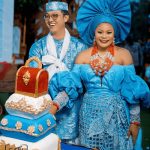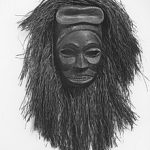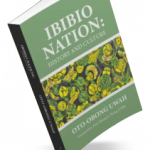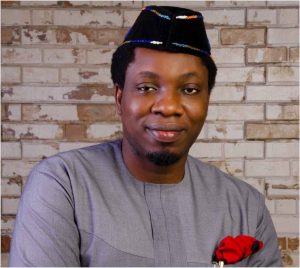
How to Marry Your Ibibio Girlfriend | Part 2
We had earlier written about how to marry your Ibibio girlfriend; the first phases in getting married to your Ibibio girlfriend. Read that here. In

We had earlier written about how to marry your Ibibio girlfriend; the first phases in getting married to your Ibibio girlfriend. Read that here. In

In Ibibio land, marriage is beyond the fusion of 2 individuals; it brings families and communities together. This is the case in many African and

Ibibio people, like other ethnic groups, have their own taboos that began in ancient times. No matter how you see them, these taboos shape Ibibio

When Queen Elizabeth II visited Nigeria in 1956, she set foot on Akwa Ibom soil. According to history, the Queen of England has visited our

It was President Ibrahim Babangida that actually said that Akwa Ibom State is founder of modern Nigeria. When did he make this statement? When he

The Ibibio people were known for many fantastic virtues in times past. These virtues historically distinguished them from other ancient ethnic groups in Nigeria. Observe

Ibom Heritage, a project to preserve Akwa Ibom culture, has been unveiled. This took place in Ibom Hall, Uyo, the Akwa Ibom State capital, by

There are more than 5 masquerades you should be afraid of in Akwa Ibom State, but in this article, I will talk about 5 of

Members of the media attended a press conference to announce the launch of Oto-Obong Uwah’s book on Ibibio history. It held on Saturday February 26,

There are fascinating God-made places in Akwa Ibom you should aim to visit. And they are, oh so luscious, oh so undiscovered. From the hills

Oto-Obong Aniefiok Uwah is the author of Ibibio Nation: History and Culture. He represents the new generation of Philosopher-Kings who believe in the unfailing strength of the human capacity to change every contrary situation. A highly motivated individual, he also plies his social trade in public speaking, coaching and mentoring.
He holds a BSC in Accounting from the University of Uyo and an MSC in International Accounting & Finance from the University of Liverpool. In his career, spanning over 19 years as an accountant and budget/cost analyst in the public and private sectors, he has developed a robust aptitude for analytical reviews and cost management towards efficient project delivery; having practiced as a Trainee Accountant with the Federal Civil Service and Cost Controller in the Oil & Gas Sector.
In actualizing various roles within this professional context, he built capacity and mentored other professionals in those roles. Currently an HR Compensation and Benefits professional, Oto-Obong has used his experience as an active labour unionist to push reforms that have led to a fairer welfare and compensation structure within the workplace.
Currently an HR Compensation and Benefits professional, Oto-Obong has used his experience as an active labour unionist to push reforms that have led to a fairer welfare and compensation structure within the workplace.
Oto-Obong Uwah is a Fellow of the Institute of Chartered Accountants of Nigeria (ICAN). He is widely trained on both local and international platforms, enhancing his professional capacity towards improved service delivery.
He is a poet, writer, political scientist, public commentator, sports enthusiast, and an accomplished humanist. His latest foray as a humanist is in the field of anthropology and heritage studies, committed to the propagation of the Nigerian cultural heritage.
Oto-Obong Uwah is of the Pentecostal section of the Christian community, happily married and blessed with three beautiful daughters. As a philanthropist, he has teamed up with his beloved wife to sponsor scores of indigent Nigerians through various levels of education. He is a very sociable person and an astute networker, easily found in the company of smart and intelligent people.
His life’s dream is the consistent improvement of humanity and the continued development of the social eco-system to make for a more fulfilling life for all. Driven by this mantra, he set out in 2015, to document the history of his Atan Offot Community in Uyo Local Government Area of Akwa Ibom State. What started as a clan-centered ambition to document the history of a small community created the pathway to a more expansive research that evolved to produce the book shared with the public today. Thus, Ibibio Nation: History and Culture is one of his modest contributions to the current global interest in the history and sociology of ethnic minorities.